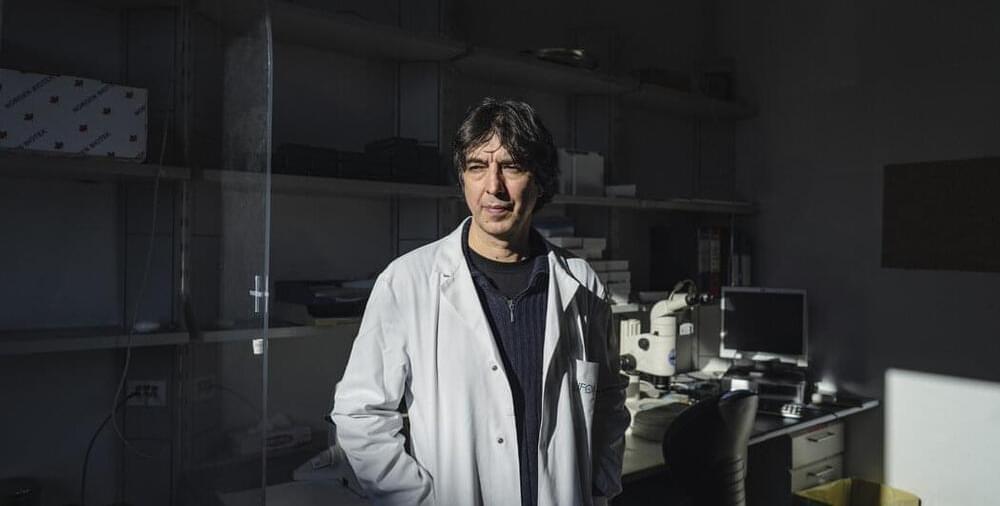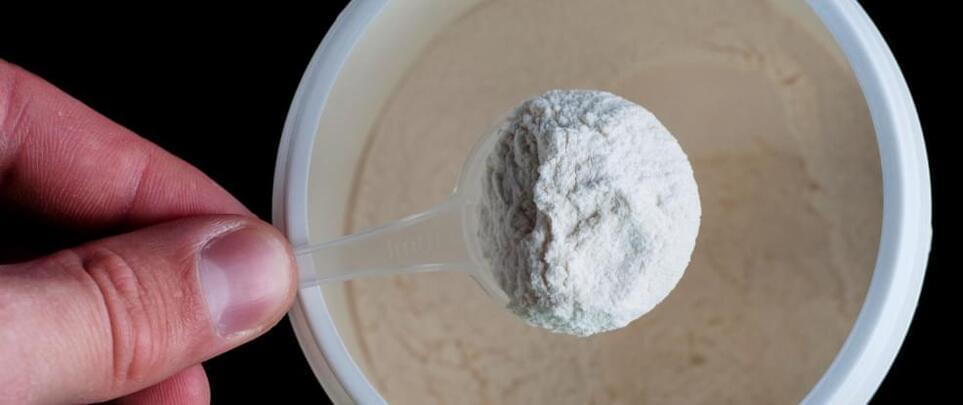In a study published in Nature Mental Health, scientists from China and the United States have found that individuals suffering from chronic musculoskeletal pain (CMP) may face a higher high risk of brain aging.



Join us on Patreon! https://www.patreon.com/MichaelLustgartenPhDDiscount Links: At-Home Metabolomics: https://www.iollo.com?ref=michael-lustgartenUse Code: C…

Plasma exchange human trials.
TPE Treatment, is an FDA-approved treatment for many autoimmune diseases, shows age reversal identified by multiple biological clocks. It improved both physical strength and mental health in human clinical trial(unpublished data) presented by Dr. Kiprov.
TPE Treatment remove certain harmful substances circulating in plasma to nourish cellular habitat and support regenerative factors. A special machine separates the polluted plasma from blood cells. The aged, polluted plasma is discarded and replaced with clean, individualized, plasma-like replacement fluids, albumin, immunoglobins and other regeneration promoting factors. The new solution of freshly-cleaned blood is infused back to the body.
Reference Links:
https://link.springer.com/article/10…
https://www.lifespan.io/news/plasma-d…
https://pubmed.ncbi.nlm.nih.gov/34074…
https://link.springer.com/article/10…
More About Dr. Kiprov:
A time question and answer starting at 32:22 (5−6 years)
Is aging a disease that can be cured? Neil deGrasse Tyson and cohosts Chuck Nice and Gary O’Reilly discover the field of epigenetics, the Information Theory of Aging, and curing blindness for mice with Professor of Genetics at Harvard Medical School, David Sinclair.
What is epigenetics? Discover the difference between genetics and epigenetics. We discuss whether aging is a disease and if there have been any changes in aging throughout the centuries. David breaks down the information theory of aging and how epigenetic inheritance works. Plus, Chuck tells us about some of the studies he’s reading and how behaviors during your lifetime can be epigenetically passed onto your children.
Could we someday cure death? What does aging look like in the broader animal kingdom? We look at aging from an evolutionary standpoint, restoring vision in blind mice, and what the length of your telomeres tells you. We break down conflicting information regarding diet and how to not just live longer but live younger, longer. What are the genes that control aging?
We break down what anti-aging medicine would look like and whether it would be affordable for everyday people. Learn about the world’s oldest mice with the youngest eyes. We discuss the Yamanaka genes and how they can be utilized to turn back time on a cellular level. Is DNA destiny?

Researchers from the Broad Institute of MIT and Harvard, along with colleagues from Harvard Medical School and McLean Hospital, have identified remarkably consistent alterations in gene expression within the brains of individuals with schizophrenia and older adults. This discovery points to a shared biological foundation underlying the cognitive difficulties frequently observed in patients with schizophrenia and in aging populations.
In a study published in Nature, the team describes how they analyzed gene expression in more than a million individual cells from postmortem brain tissue from 191 people. They found that in individuals with schizophrenia and in older adults without schizophrenia, two brain cell types called astrocytes and neurons reduced their expression of genes that support the junctions between neurons called synapses, compared to healthy or younger people. They also discovered tightly synchronized gene expression changes in the two cell types: when neurons decreased the expression of certain genes related to synapses, astrocytes similarly changed expression of a distinct set of genes that support synapses.
The team called this coordinated set of changes the Synaptic Neuron and Astrocyte Program (SNAP). Even in healthy, young people, the expression of the SNAP genes always increased or decreased in a coordinated way in their neurons and astrocytes.

Results of DNA studies also seem to confirm the idea that optimism is an effective tool for slowing down cellular aging, of which telomere shortening is a biomarker. (Telomeres are the protective caps at the end of our chromosomes.) This research is still in progress, but the early results are informative. In 2012, Elizabeth Blackburn, who three years earlier shared a Nobel Prize for her work in discovering the enzyme that replenishes the telomere, and Elissa Epel at the University of California at San Francisco, in collaboration with other institutions, identified a correlation between pessimism and accelerated telomere shortening in a group of postmenopausal women. A pessimistic attitude, they found, may indeed be associated with shorter telomeres. Studies are moving toward larger sample sizes, but it already seems apparent that optimism and pessimism play a significant role in our health as well as in the rate of cellular senescence. More recently, in 2021, Harvard University scientists, in collaboration with Boston University and the Ospedale Maggiore in Milan, Italy, observed the telomeres of 490 elderly men in the Normative Health Study on U.S. veterans. Subjects with strongly pessimistic attitudes were associated with shorter telomeres — a further encouraging finding in the study of those mechanisms that make optimism and pessimism biologically relevant.
Optimism is thought to be genetically determined for only 25 percent of the population. For the rest, it’s the result of our social relationships or deliberate efforts to learn more positive thinking. In an interview with Jane Brody for the New York Times, Rozanski explained that “our way of thinking is habitual, unaware, so the first step is to learn to control ourselves when negative thoughts assail us and commit ourselves to change the way we look at things. We must recognize that our way of thinking is not necessarily the only way of looking at a situation. This thought alone can lower the toxic effect of negativity.” For Rozanski, optimism, like a muscle, can be trained to become stronger through positivity and gratitude, in order to replace an irrational negative thought with a positive and more reasonable one.
While the exact mechanisms remain under investigation, a growing body of research suggests that optimism plays a significant role in promoting both physical and mental well-being. Cultivating a positive outlook, then, can be a powerful tool for fostering resilience, managing stress, and potentially even enhancing longevity. By adopting practices that nurture optimism, we can empower ourselves to navigate life’s challenges with greater strength and live healthier, happier lives.

Research in mice shows limited intakes of one particular essential amino acid can slow the impacts of aging and even lengthen their lifespan.
Scientists are now wondering if these findings could help people improve their longevity and quality of life.
Isoleucine is one of three branched-chain amino acids we use to build proteins in our bodies. It is essential for our survival, but since our cells can’t produce it from scratch, we have to get it from sources like eggs, dairy, soy protein and meats.
